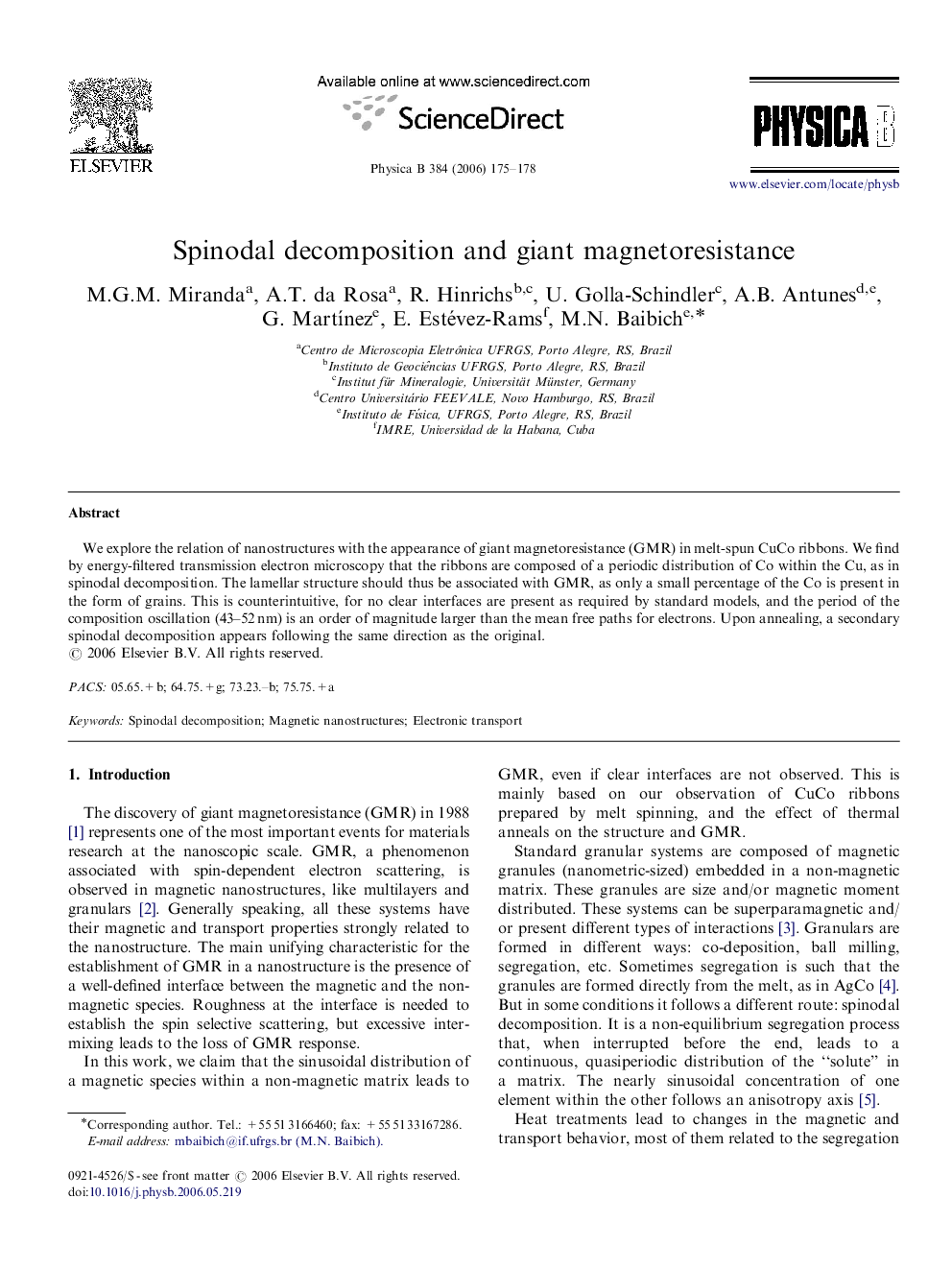| Article ID | Journal | Published Year | Pages | File Type |
|---|---|---|---|---|
| 1815279 | Physica B: Condensed Matter | 2006 | 4 Pages |
Abstract
We explore the relation of nanostructures with the appearance of giant magnetoresistance (GMR) in melt-spun CuCo ribbons. We find by energy-filtered transmission electron microscopy that the ribbons are composed of a periodic distribution of Co within the Cu, as in spinodal decomposition. The lamellar structure should thus be associated with GMR, as only a small percentage of the Co is present in the form of grains. This is counterintuitive, for no clear interfaces are present as required by standard models, and the period of the composition oscillation (43–52 nm) is an order of magnitude larger than the mean free paths for electrons. Upon annealing, a secondary spinodal decomposition appears following the same direction as the original.
Related Topics
Physical Sciences and Engineering
Physics and Astronomy
Condensed Matter Physics
Authors
M.G.M. Miranda, A.T. da Rosa, R. Hinrichs, U. Golla-Schindler, A.B. Antunes, G. Martínez, E. Estévez-Rams, M.N. Baibich,
